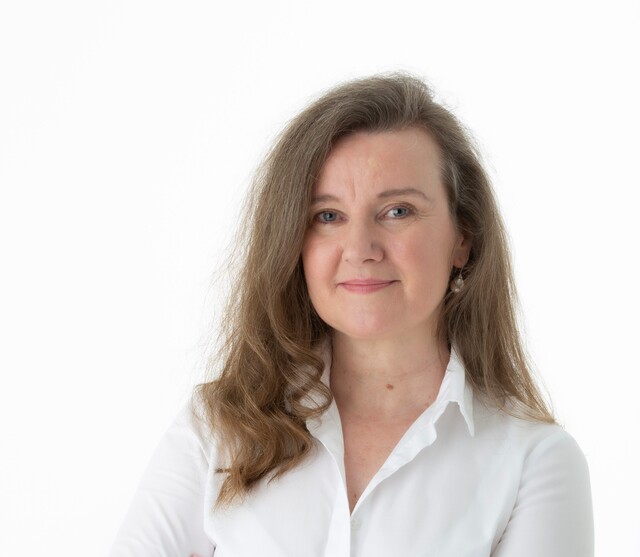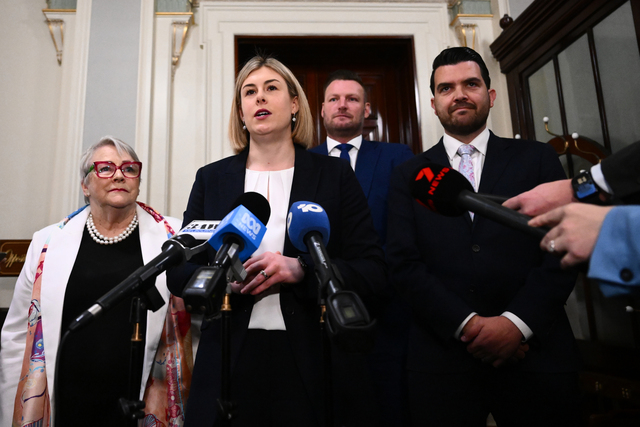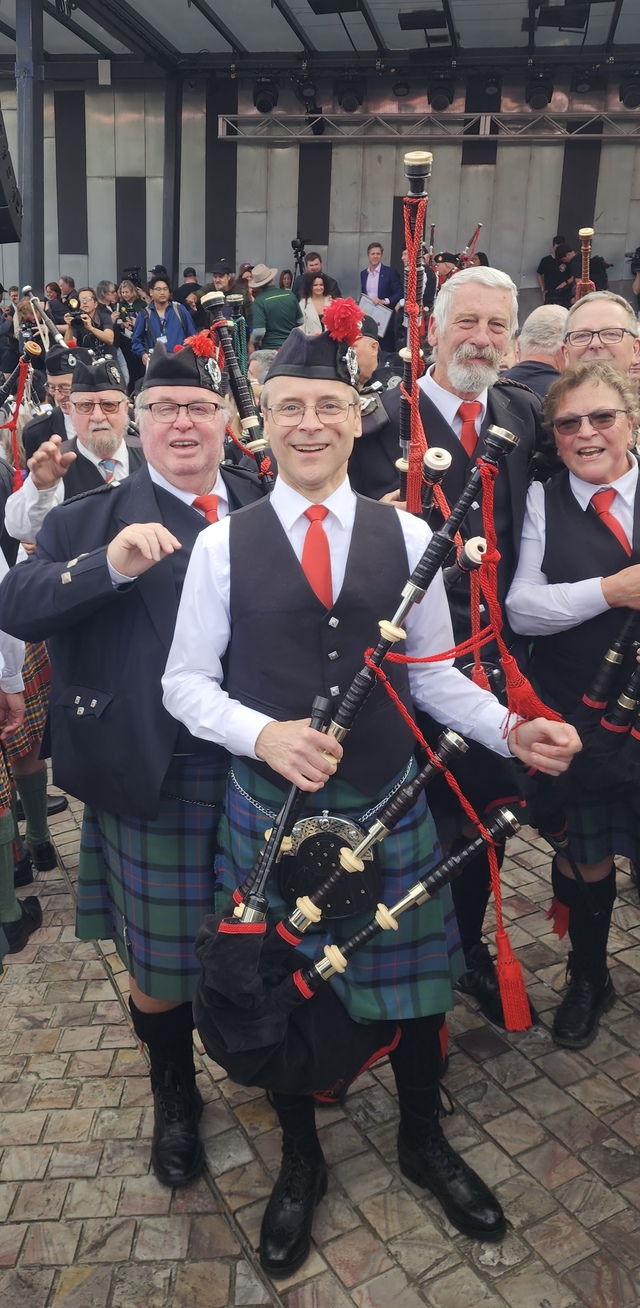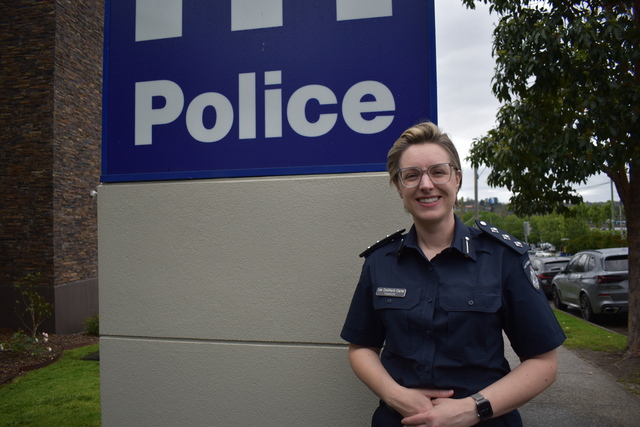By Kath Gannaway
WHEN Rev Dipaloko’s data is keyed into the 2011 Census it will contribute to some interesting statistics.
Rev, nearly 70, will be part of an ageing population, part of an increasing number of people living alone, and a growing number of people who list their religion as Buddhism.
He will also be part of a very small minority group, the 0.03815 per cent of Australians, who are from Burma.
It won’t tell of how a Buddhist monk came to Australia as a visitor in 1993, was granted political asylum … and now lives in Healesville as an Australian citizen.
He was unaware of how far-reaching the political tentacles of the Burmese military regime are when he was sent to Australia in 1993 under the guise of teaching Buddhism.
He said he soon discovered that the Buddhist organisation which had fostered his visit had been infiltrated by the military influences and their aim was to gain power and curry favour with the regime back home.
After seven months, having tired of dealing with the manipulation of a committee he said included former Burmese military people, he made it known he wanted to return home.
He was told it would bring shame on the government if he was to return, and he learned through supporters that letters had been written making damaging accusations to discredit him.
The existence of the letters was denied and Rev was called back home to be ‘reassigned’.
After one of the letters was produced at a meeting he was told by supporters “don’t come home … soldiers will be waiting at the airport to disrobe you and put you in jail”.
“In Burma when someone accuses you, you have no right to defend yourself, they are the jury, prosecution and judge … all one,” Rev said.
Fearing for his life, in 1994 he came to Victoria where he maintained his status as a monk in a Cambodian refugee community.
It was a traumatic and uncertain time for Rev who had known no other life but that of a Buddhist monk since he entered the monastery as a six-year-old.
His family fled their small village after communist rebels burnt it. He was an infant when his mother died, and his grandfather looked after him until he joined the monastery.
He said he became depressed, overwhelmed and obsessed with his situation.
His only sanctuary was his religion. With his sponsorship at an end he faced the very real prospect of being deported back to Burma and almost certain imprisonment. He applied for and received political asylum.
After a time, he made the difficult decision to disrobe.
“Before I came to Australia I was a very prominent monk. In Burma people pay respect to a Buddhist monk, but here they are regarded as an employee,” he explained.
“I disrobed to get back my identity. I wanted to be like other people, so nobody could manipulate me and tell me what to do.”
That decision left him virtually homeless and led him to Healesville.
“I was lucky that I never had to sleep on the roadside, but I didn’t have a home and getting accommodation is very difficult if you don’t have a job,” he said.
He was offered public housing in a group of units for people over 55 and for the past 12 years has had the security of a home.
“If you have a place of your own, you have freedom,” he said.
“For me, home is everything.”
Although he had a roof over his head, he found himself a mentor in his neighbour Harry Blenhiem – a genuine Aussie who could teach him about Australian ways, and had made community connections through teaching meditation and computers, in his mind, connections with his homeland remained strong.
He had become an Australian citizen, but he says the turmoil and fear of the regime stayed with him. He had recurring dreams of persecution. “I was naturalised but in my mind I was still in my country. When I dreamed I was still in Burma,” he said.
“I realised I am only physically living here, but in my mind (I am) only in my country,” he said.
It was another threat, another turmoil, that brought a sense of belonging.
Rev and others in the units had had to leave Healesville during the 2009 bushfires.
“It was then I made the decision not to go home,” he said. Now, when he dreams, often he is in Australia. In the Buddhist way, he doesn’t strive for happiness in his new life.
“Our priority is neither happy, nor unhappy,” he said.
“The most important think is not happy, but freedom, independence and security … in my small place I have those things,” he said.
On census night, he has done his bit as an Australian. His completed census is sealed and awaits collection.
He said he can see the benefits of planning for present and future generations in areas such as health, housing and education.
And he has no suspicions of the Australian government as he would have had in Burma.
“I lead a simple life,” he said.
Rev counts blessings
Digital Editions
-
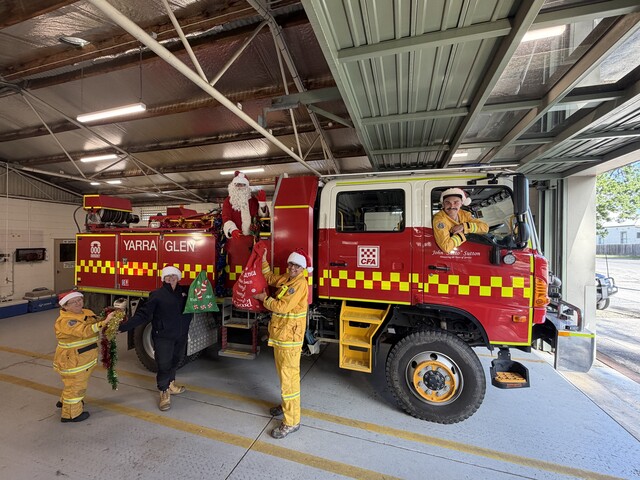
Yarra Glen CFA spreads festive cheer
Mark your calendars! The Yarra Glen CFA is once again preparing for their beloved annual tradition: the Santa Run on Christmas Eve, 24 December. Starting…

